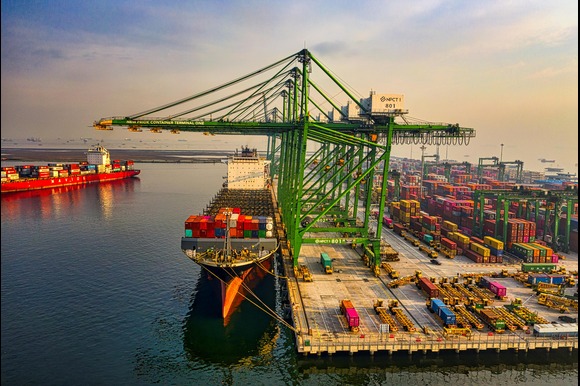Ocean freight bookings from China to the United States have skyrocketed by nearly 300% following a temporary suspension of mutual tariffs between the two countries, according to data from container-tracking provider Vizion.
The latest seven-day average for cargo bookings from China to the US has surged to 21,530 twenty-foot equivalent units (TEUs), compared to just 5,709 TEUs for the week ending May 5, said Ben Tracy, Vice-President at Vizion.
Tariff Truce Spurs Spike in Shipping Activity
The sharp increase in shipping volume comes on the heels of a 90-day tariff truce reached during bilateral negotiations in Switzerland. As part of the agreement, US tariffs on Chinese imports have been reduced to 30%, while Chinese tariffs have been lowered to 10%.
Many US importers had halted or slowed orders after President Donald Trump announced plans on April 2 to introduce a punitive 145% tariff on Chinese goods. However, Monday’s suspension of those plans has revitalized trade flows, with analysts predicting an earlier-than-usual onset of the peak shipping season.
Shipping companies have responded swiftly to the easing of trade tensions. Global shipping giant Maersk reported a notable increase in bookings for its trans-Pacific services following the truce announcement.
“We anticipate front-loading to resume, leading to an earlier start — and likely an earlier taper — to the peak ocean shipping season this year,” noted international freight platform Freightos.
Retailers Race to Import Chinese Goods Ahead of Summer Season
German container shipping firm Hapag-Lloyd also reported a 50% week-on-week jump in its US-China bookings during the first few days of the current week. Major US retailers, including Walmart and various clothing brands, are moving quickly to import goods manufactured in China for the upcoming summer shopping period, according to logistics provider Portless.
Orders for warm-weather merchandise such as sundresses, bathing suits, clogs, and sunscreens have surged as brands take advantage of the reduced tariffs. Factories in China are ramping up output to meet this sudden demand.
Although the tariff reprieve offers welcome relief to US retailers eager to replenish inventories, the rapid rise in bookings could strain global supply chains, said Arun Sundaram, a research analyst at CFRA.
“We’re likely to see some bottlenecks, though they won’t be as severe as the disruptions experienced during the pandemic years of 2021 and 2022,” Sundaram explained. He also forecasted a short-term increase in freight costs as a result of the demand spike.






